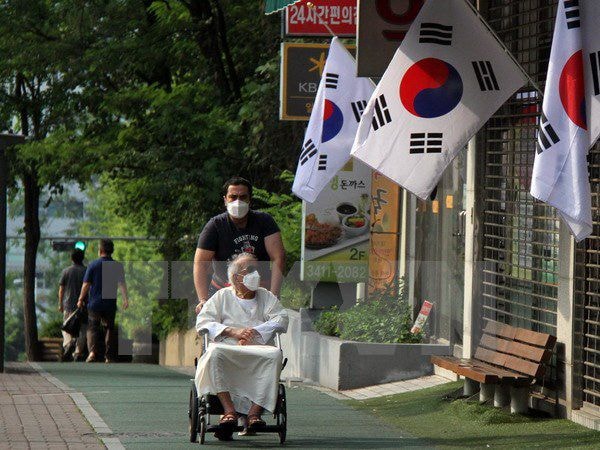Successfully prepared anti-MERS virus antibody from ostrich eggs
 |
| People in Seoul wear masks to prevent MERS. (Source: THX/TTXVN) |
In the context of the Middle East Respiratory Syndrome (MERS) caused by coronavirus raging in Korea, a group of scientists led by Professor Yasuhiro Tsukamoto, a leading expert in animal epidemiology at Kyoto University Graduate School, has successfully researched and prepared a large number of antibodies with strong inhibitory ability against this dangerous virus from ostrich eggs.
The drug was also tested at the US Army Medical Research Center for Infectious Diseases, which co-led the research with Professor Tsukamoto.
The spray has begun shipping in large quantities to South Korea and the United States.
Under the influence of this type of antibody, coronavirus cannot penetrate human cells and is very effective in preventing infection with this deadly virus.
This time, Professor Tsukamoto created a form of the coronavirus surface protein, made from silkworm cells, and introduced this protein into the ostrich's body as an antigen.
Scientists will purify antibodies from ostrich eggs containing anti-virus antibodies to create the drug.
Coronavirus enters human cells through a specific protein. Professor Tsukamoto explained: “This type of antibody will form a mask outside the cell that prevents the virus from entering the cell. I hope that with that ability, the antibody will be able to prevent MERS infection."
Professor Tsukamoto appreciates the ostrich's immune system, which has the ability to heal wounds very quickly.
Currently, Professor Tsukamoto's group has developed technology to produce antibodies in large quantities from ostrich eggs since 2008 thanks to the high antibody production ability of this species.
“Antibody masks” attracted particular public attention when they were widely sold during the 2008 flu epidemic, and ostrich antibodies against the Ebola virus were also produced in 2014.
Bioventure (USA) and its research center are also promoting the campaign to deal with the MERS epidemic with Kyoto University.
Currently, the center is testing the side effects and effectiveness of the antibodies after purification.
In addition to South Korea, a batch of antibody drugs has been shipped to the US. Because the drug is not yet certified for direct administration to the human body, it is temporarily only used as a mist containing antibodies to be sprayed on masks, hands and doorknobs to prevent the epidemic.
The drug is expected to be distributed to medical workers and airports in South Korea and Japan./
According to Vietnam+






